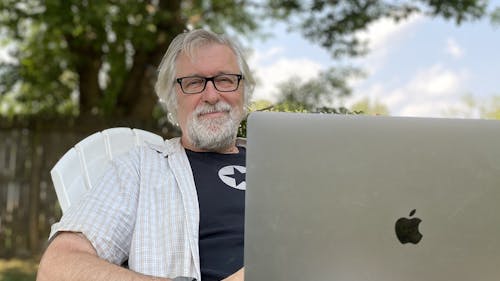Rutgers professor discusses science of hand-washing for coronavirus

Frequent hand-washing is essential for ensuring health during the coronavirus disease (COVID-19) pandemic, according to the Centers for Disease Control and Prevention (CDC) website.
Donald Schaffner, extension specialist and distinguished professor in the Department of Food Science, discussed how hand-washing provides a strong defense against the virus that causes COVID-19.
Soap molecules can attach part of themselves to both water molecules and particles like the virus, he said. This unique property allows soap to remove the virus from hands, along with dirt, oil and grease particles.
“Really what you’re doing when you’re washing your hands is you're not killing those microorganisms, you’re just washing them down the drain,” Schaffner said.
He said the COVID-19 virus is easier to remove than more resistant viruses, such as norovirus.
“(The COVID-19 virus) is what we call an enveloped virus, which means it’s actually kind of a wimpy virus,” Schaffner said. “Which means it’s pretty easy to kill (and) it’s pretty easy to remove.”
The basic procedure for hand-washing includes wetting hands thoroughly, lathering them, rinsing after 15 seconds and drying them using a cloth or paper towel, he said.
A common misconception about hand-washing, Schaffner said, is that a hot water temperature is the most effective for removing germs. Research demonstrates that the water temperature used does not matter.
“What you want to do when you’re washing your hands is ... to use a water temperature that’s comfortable … so that you can do a good job and really take the time that you need,” he said.
If soap and running water are not readily available, alcohol-based hand sanitizers are a convenient and effective alternative, Schaffner said.
He also said since groceries pose little risk for contracting COVID-19, washing hands or using hand sanitizer after handling them is a better course of action than sanitizing the groceries themselves. The CDC saw a large increase in calls to poison control centers about cleaner and disinfectant exposures, indicating overuse of these products, Schaffner said.
There has been evidence that incidences of food-borne diseases have gone down during the pandemic, which may be partly due to hand-washing, sanitation and other COVID-19 prevention measures, he said.
“I hope the pandemic has made people aware of the importance of good sanitation and of washing your hands,” Schaffner said.



